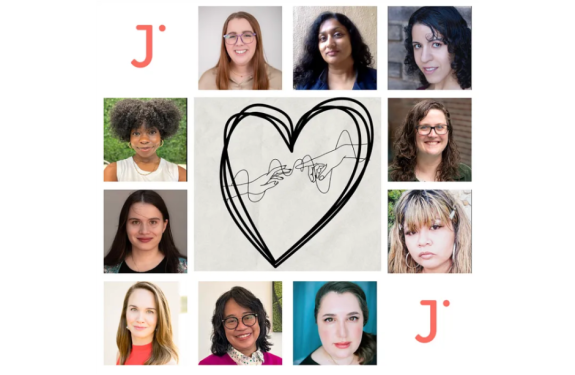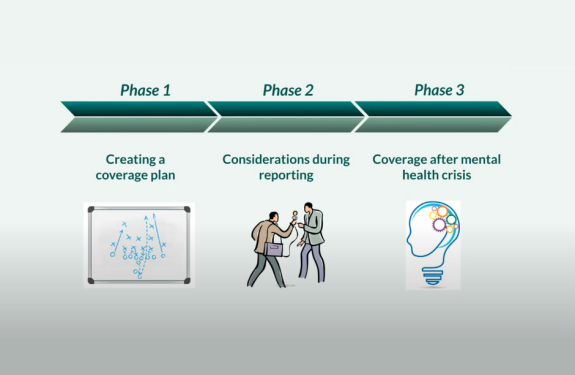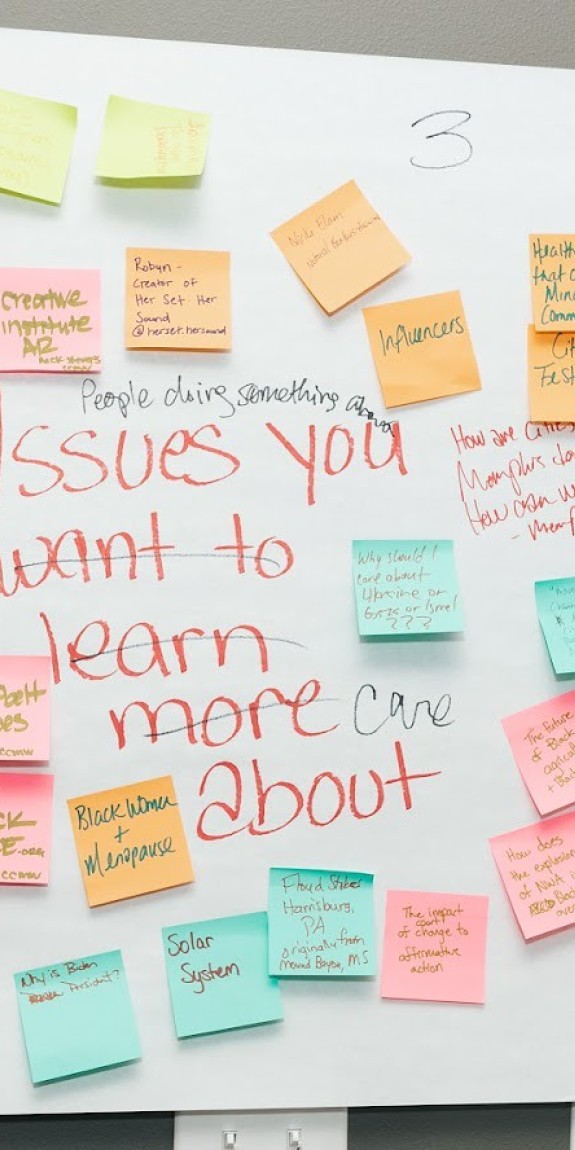Youth Mental Health
Reporting on youth mental health through the lens of solutions shifts conversations to what's possible. Student journalists from eight U.S. colleges and universities used solutions journalism to examine mental health topics. An inaugural class of 10 HEAL Fellows reported for and with young people who are facing mental health challenges.
By focusing on solutions, narratives are steered away from sensationalism and towards genuine, empowering stories, fostering understanding, empathy and informed conversations on stigmatized health challenges like substance use disorder.
Pictured above: Journalists celebrate at a 10-year Solutions Journalism Network anniversary party in Lagos, Nigeria.
Student Media Challenge
Over the course of the 2023-24 academic year, student journalists from eight U.S. colleges and universities fanned out across their campuses to report on possible solutions to the mental health crisis. With the support of Student Media Challenge grants, as well as ongoing training, mentoring and coaching, they focused on contributing factors such as food and housing insecurity, the threats of gun violence and campus sexual assaults, and the lingering effects of the pandemic.
Among the highlights:
- At Pepperdine University in California, a digital and broadcast special edition focused on solutions related to climate anxiety in a region endangered in recent years by rockslides, erosion and wildfires.
- In North Carolina, the Student Media Challenge supported a first-of-its-kind digital and print mental health reporting collaborative of nine schools across the state.
- The Daily Tar Heel, the independent newspaper of the University of North Carolina, coordinated the effort, publishing a range of news and opinion pieces.
"A Part of What's Going Right": How Solutions Journalism Changed a Student Newsroom
As grantees of the first Student Media Challenge from Solutions Journalism Network, the University of Georgia's Grady College of Journalism took on a unique assignment during the 2022-23 academic year: not just covering how local communities are addressing problems, but saving a cherished local paper in the process.

HEAL Fellowship
Launched in October 2023, SJN’s inaugural class of 10 HEAL Fellows is reporting for and with young people who are facing mental health challenges, and healing through innovative community responses. During their yearlong fellowship, the members of the group will produce stories that:
- (H)elp spread rigorous reporting on what’s working to address mental health issues and inequities;
- (E)xpand young audiences’ access to solutions reporting on issues affecting them;
- (A)ssess the impact of the solutions reporting in the community; and
- (L)earn how to report on and amplify youth mental health solutions.
Already, the fellows have published stories about a wide range of responses to the youth mental health crisis, such as new legislation to support mental health screening in Colorado and a student-started, grief-driven gun violence support group in Birmingham. Some fellows have also blended solutions and service journalism, as in this feature exploring how online communities are helping young, lonely and chronically ill people find healing and hope.
How the LA Times Covered Mental Health Equity in Communities of Color
Through a yearlong mental health initiative, For Your Mind, three Los Angeles Times journalists wrote pieces that explored how mental health stigma plays out in different communities of color, including how some in those communities are effectively responding to that stigma. In addressing mental health in diverse communities, the team introduced solutions journalism concepts as a pathway to stronger reporting that deepens audience engagement and builds community trust.

Youth Mental Health Webinars
One in 7 adolescents live with a diagnosed mental health disorder, and the rate of suicide is on the rise. SJN partnered with the Stanford Center for Youth Mental Health and Wellbeing to develop best practices for journalists covering these stories. Two webinars emerged from the project, incorporating solutions journalism principles into Stanford’s Tool for Evaluating Media Portrayals of Suicide, or TEMPOS.
The webinars demonstrate how to stop perpetuating harmful news narratives of shame and despair and highlight emerging stories of youth taking the lead in forging a new culture of health in their schools and communities.
In founding El Colectivo 506, Katherine [Stanley Obando] and I joined a movement that connects our need for information — that basic service that ‘the news’ fulfills — with our need to counteract the impact it has on our mental health, and the negativity it typically inspires. That movement is called Solutions Journalism.

